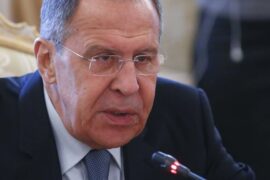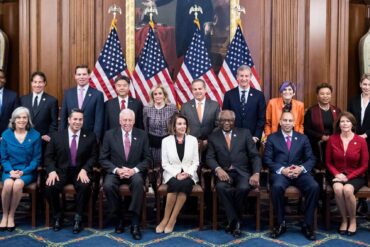Coalition Chairman Miki Zohar said Tuesday morning that his Likud party will work to form an alternate coalition if the present government falls.
Speaking with Radio 103FM, Zohar said Prime Minister Binyamin Netanyahu (Likud) is seeking to avoid new elections, and will turn to the Yamina and Yisrael Beiteinu factions to try forming a narrow nationalist government if Defense Minister Benny Gantz’s Blue & White party continues to insist on its demand that the coalition pass a two-year budget.
The current government has until August 15th to pass a budget or dissolve the Knesset and initiate early elections.
“We won’t endanger the Israeli economy, we won’t do it,” Zohar said.
Likud ministers and lawmakers have argued that under the current circumstances created by the coronavirus pandemic, as well as accompanying alterations in revenue and spending, the coalition should pass a one-year budget.
“The prime minister doesn’t want new elections,” Zohar continued. “He wants a stable economy here. We want to pass a budget immediately.”
“If Blue & White decides to back a one-year budget, then everything will be fine.”
Zohar emphasized that while the Likud is not currently in talks with either Yamina or Yisrael Beiteinu, it will work to form a narrow government with those two factions, as well as Shas and United Torah Judaism, if it becomes obvious that there’s no possibility of keeping the current coalition intact.
“Right now there are no negotiations with [Yamina leader Naftali] Bennett or [Yisrael Beiteinu leader Avigdor] Lieberman for the formation of a narrow government. But if we feel that the coalition with Gantz is coming apart, we will start negotiations.”
Following each of Israel’s recent three elections, Lieberman refused to join a nationalist Likud-led coalition, most likely because he had been working on behalf of the United States to force the establishment of a Likud-Blue & White unity government that would implement US President Donald Trump’s two-state “Deal of the Century.”
But now that Trump is distracted with the coronavirus pandemic, widespread racial justice protests and an approaching US presidential election, Lieberman is likely more free to join a nationalist government under Netanyahu.
Member of Knesset Betzalel Smotrich (Yamina), however, dismissed reports that Netanyahu is planning to form a nationalist government.
In a Tuesday morning interview with Galei Tzahal, Smotrich pointed out that Netanyahu is responsible for breaking up the nationalist bloc.
“I don’t buy it. If it [a nationalist government] could be formed, it would have been formed after the elections, unless Netanyahu preferred Gantz to begin with. Netanyahu broke up the nationalist bloc, and unfortunately there is no way to fix it.”
While Smotrich is correct that it was Netanyahu who betrayed Yamina when leaving them out of the current coalition, he may not fully appreciate the extent to which the White House had been pressuring the Likud leader to exclude factions ideologically opposed to aspects of the Trump plan. Yamina’s hardline opposition to any territorial concessions made it impossible for Netanyahu to include the party in his government without angering Trump.
This doesn’t mean Netanyahu shouldn’t be held accountable for his actions – only that Yamina lawmakers and their supporters must understand the extent to which Washington’s interests often influence the decisions made by Israeli leaders. Continued ignorance to how powerful a role imperial pressure plays in Israeli policy making only leaves those politicians loyal to Eretz Yisrael unprepared to resist US demands in the future.
Smotrich further indicated that Yamina might prefer new elections to joining a narrow Likud-led coalition and that his party wouldn’t commit to backing Netanyahu for prime minister next time around.
“I don’t know if we’ll recommend Netanyahu again, there are a lot of things that can change,” he said.
“The Israeli public understands that Netanyahu isn’t delivering the goods.”
Smotrich’s comments come in the wake of several polls that have shown Yamina’s parliamentary strength growing significantly if Israel were to head to elections for the fourth time in 18 months.
It has also been reported that Yamina leader Naftali Bennett intends to challenge Netanyahu for the premiership if new elections are called. Whether or not that’s the case, Yamina would clearly benefit more than any other faction from elections taking place as soon as possible. If the current government does in fact break apart over the budget, Yamina joining a narrow coalition under Netanyahu would be a major strategic error.





